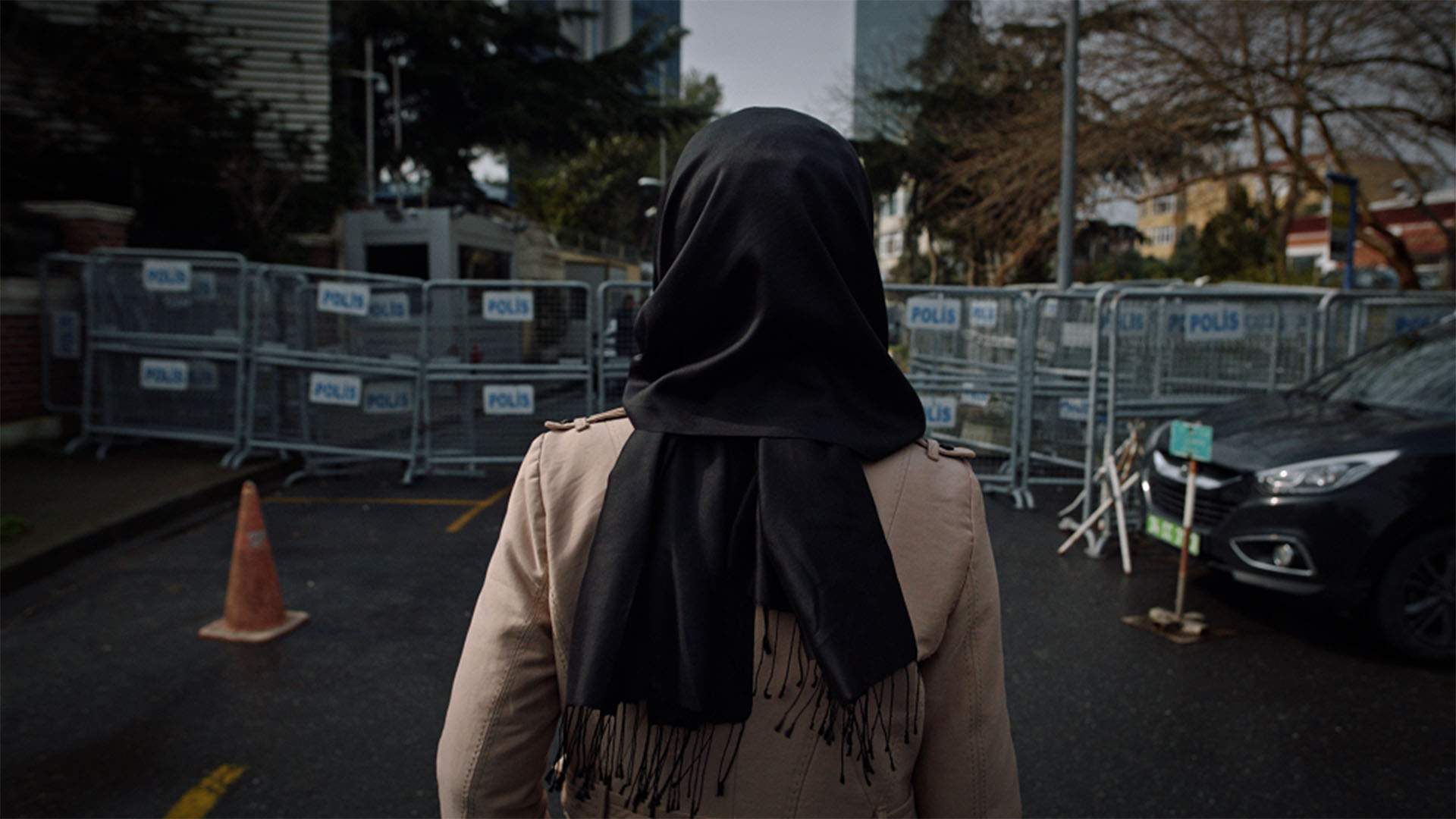The Dissident
This thorough, exacting and understandably infuriated documentary details the life and death of assassinated Saudi journalist Jamal Khashoggi.
Overview
If you know even the slightest thing about the circumstances surrounding Jamal Khashoggi's death, it's impossible to watch The Dissident without feeling angry. That's most viewers' starting mood, given that the Saudi journalist and Washington Post columnist's assassination has garnered ample media attention — and Oscar-winning director Brian Fogel (Icarus) is well aware of how much coverage the subject has received, and of how the world feels about the situation. Indeed, his thorough and exacting documentary both feeds upon and fuels that shock and ire. The mood is tense, the commentary is pointed and the prevailing sentiment is savage. Both rage and outrage permeate each frame, unsurprisingly so, as the film lays bare the brutal facts surrounding Khashoggi's murder, its lead-up and its aftermath. No other tone would be acceptable. Nothing other than dismay, abhorrence and anger would be either. When you're making a movie about a man who entered his nation's embassy to obtain paperwork so that he could get married, then left it in dismembered pieces while his bride-to-be waited outside, how could anything other than fury, horror and alarm eventuate?
Although the details have already been well-documented since October 2, 2018, they're still reassembled in The Dissident. Accordingly, the doco tells of Khashoggi's visit to the Saudi consulate in Istanbul just over a year after fleeing his country, after which he was never seen alive again. He wanted to marry academic Hatice Cengiz, his Turkish fiancée. To do so, he needed a document certifying that he was no longer wed to his prior wife. He'd first sought that necessary certification from the embassy just a few days earlier, so they knew that he'd be returning — and once he stepped inside once more, he was ambushed, attacked and killed by a newly arrived team of Saudi agents. Cengiz contacted the authorities when the man she thought she'd be spending the rest of her life with didn't surface, but the Saudi government claimed that the exiled reporter had left via a back entrance. It didn't take long to ascertain the truth, as was suspected from the moment he failed to reemerge. The official story changed several times, and Saudi Crown Prince Mohammed bin Salman denied any knowledge of a premeditated plot, but the fact remains that Khashoggi was slaughtered by operatives from his homeland.
Nothing about Khashoggi's plight has been easy to face over the past three years; however, confronting this true tale is essential. Even if the soundtrack to his film needlessly overstresses the emotive highs and lows, Fogel is clearly aware of just how important his task is here, and does his part to help ensure that these specific events aren't allowed to fade in anyone's memories. He charts the tough-to-stomach minutiae, knowing that ignoring and forgetting the grim intricacies isn't that much different from excusing or accepting them. Crucially, he also provides a wealth of context, including by chronicling Khashoggi's career from the 80s onwards. Initially, the journalist had a congenial relationship with Saudi's monarchy and government, but that shifted as he called them out in article after article — and as he continued to speak the same truths to the same powers, and to the world, after leaving for Washington DC in 2017.
Also earning the attention of Fogel and his co-writer Mark Monroe (The Bee Gees: How Can You Mend a Broken Heart): Omar Abdulaziz. Another Saudi exile, the now-Canada based vlogger was friends with Khashoggi, and recounts their connection throughout the film. Early on, Abdulaziz says that the fate of his pal weighs heavily upon him, but it takes The Dissident time to fully explain why — beyond the normal bounds of grief and past the anger that everyone aware of Khashoggi's assassination feels, that is. While Fogel could be accused to trying to add extra intrigue, urgency and mystery to a movie that largely deals in known facts, his documentary is already gripping anyway; rather, he's further fleshing out the background to a heinous crime. The intimate details explored and exposed throughout the film, including a wealth of surveillance footage, phone calls and WhatsApp messages, and even audio transcripts of the murder taking place, all evoke a strong reaction, of course. But so does seeing the bigger picture, including gleaning the feature's insights into how some countries can work ruthlessly and in a highly orchestrated manner to silence dissenting voices, and understanding the role that both technology and money play in such targeted activities.
Whether recounting the grisly reality of Khashoggi's final minutes, conveying the callous disregard directed his way by his assassins and their government, hearing from Turkish police and prosecutors, listening to Abdulaziz or spending time with Cengiz, The Dissident never loses sight of its core focus. This is a movie about one of the utmost political atrocities of the past five years — and about the fact that few repercussions have come Saudi Arabia's way since, with the last US President even claiming that the situation was too ambiguous — but it's also a film about Khashoggi above all else. Here, he isn't just a martyr. He's not simply a name splashed across news headlines, and repeated again and again in broadcasts. And, he's definitely never the type of figure that's discussed and detailed yet always remains a remote presence. Some of The Dissident's most stirring moments feature the journalist being himself and trying to find happiness again, in fact, all after being forced to start his life anew. That's part of this equally chilling and moving doco's power. Truly coming to terms with how Khashoggi's life came to an end involves seeing not just a man given the titular label, or someone killed for speaking out, but a person who sought a better future for himself and for his homeland, only to have his existence cruelly extinguished instead.





